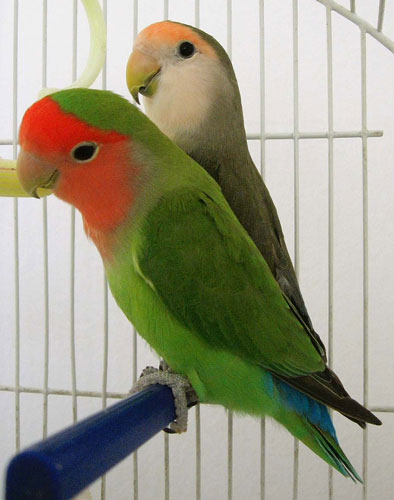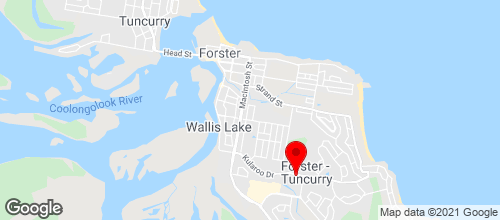Caring For Your Bird

Once you have taken your bird home, you become fully responsible for its care and well-being. We owe it to our feathered friends to give them the best possible care. If we remember that many birds are as intelligent as young children, and often have similar emotional levels, it becomes clear that it is not good enough to just put them in a cage with some seed and water, and hope for the best.
Environment
The first choice you need to make is where you are going to keep your bird. Birds can tolerate a wide range of temperatures, but sudden changes can be detrimental. Windy areas should be avoided, although mild breezes will often be welcome. Fresh air and unfiltered sunshine are important, and if necessary you may have to put your bird outside for an hour or so each day. If your bird is from a tropical region, you may need to mist it with water once a day to keep it comfortable.
Housing
A simple rule is – get the biggest cage you can afford. Cages should be long, rather than high, as birds fly horizontally, not vertical. At the same time, the cage must be high enough to accommodate long tails if necessary. The cage should be made from safe, non-toxic wire, and should be strong enough to prevent the bird chewing its way out. Chicken wire is not suitable, as many larger parrots and cockatoos can chew it and become poisoned.
Perches should be clean, easily replaceable, appropriately sized, natural wood branches from non-toxic, pesticide free trees. As a guide, if native birds perch in a tree, it should be safe for your birds. Dowel or plastic perches should be avoided. Rope perches are often suitable. Only place 1-2 perches in a cage, and make sure they do not overhang food and water dishes.
Wide rather than deep dishes allow better access to feed and water, and ensure that all food items can be reached. Dishes should be stainless steel, plastic, glass or glazed ceramics. Terracotta dishes and galvanised dishes are not suitable, and many galvanised dishes have lead solder on them.
Sandpaper cage liners and perch covers can be detrimental to your bird’s health. Newspaper is much safer, easy to replace and more hygienic. Sand or gravel floors should be avoided, as birds may overeat these substrates when ill.
A box should be provided in the cage for your bird to escape into when it needs privacy.
The cage should be cleaned thoroughly at least once weekly, and the floor liners replaced daily. Feed and water dishes should be washed daily.
Activity
Parrots are intelligent, active creatures, and should be allowed to exercise out of their cage at least once daily. This exercise obviously needs to be done under supervision, and in the safety of the home.
Placing the cage where your bird can see and participate in family activities will provide your bird with plenty of stimuli.
Toys can be very beneficial, but they must be selected for their safety. ‘Chewable items include branches, pinecones, rawhide chews, and soft white pine. Some birds like to tear paper and enjoy the cardboard from a toilet paper roll; others may like a piece of corn on the cob or a passionfruit. Even branches with leaves placed on or against the outside of the cage, that the bird can pull through the wires, is ‘occupational therapy’.
General Care
A good diet is essential and this will depend on the species of bird you have. Your veterinarian will be able to advise you on the most appropriate diet.
Most birds enjoy daily bathing. Some will bathe in a dish or bowl; others prefer a large handful of wet lettuce leaves. If the bird resists any form of bathing, a daily misting with clean water will encourage it to groom itself and will keep the bird clean. Do not add anything to the bath water.
Like other pets, an annual check-up is recommended to keep your bird in good health and pick up any problems before they become sick.
Things to avoid:
- sandpaper perch covers and cage liners.
- air pollutants such as cigarette smoke, insecticides, burning saucepans.
- easily dismantled toys, and items with lead or metal parts.
- access to toxic plants, ceiling fans, young children and dogs and cats.
Categories: Bird Care
Tags:
